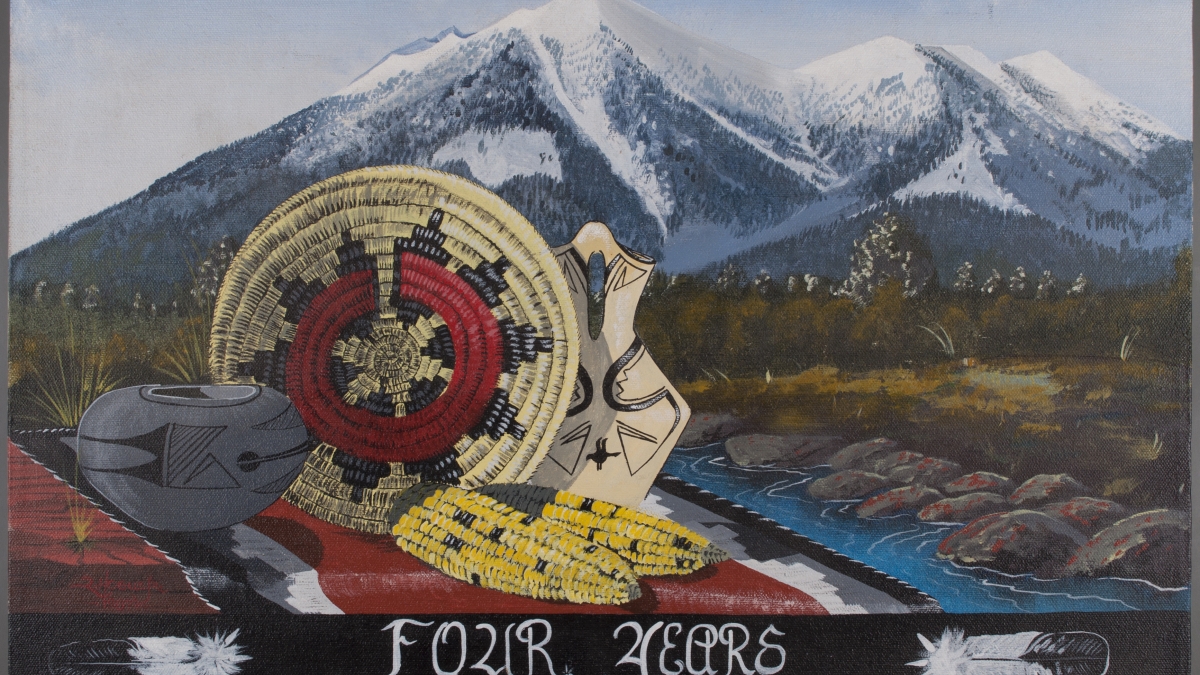ASU exhibit spotlights historic political firsts

With election season upon us – not only for the state and federal government, but for tribal nations such as the Navajo Nation – ASU Libraries are highlighting campaign material from their donated political manuscript collections.
The Chicano/a Research Collection and the Labriola National American Indian Data Center spotlight historic political firsts in their new exhibit, "Political Trailblazers on Campaign." The exhibit will be on display through fall 2014 and can be seen at the Hayden Library Rotunda, the Labriola Center (Level 2), and the Luhrs Gallery (level 4).
"Political Trailblazers on Campaign" celebrates the political drive and campaigns of local leaders and politicians. The exhibit also presents a brief history of American Indian voting rights in Arizona and highlights the first female Chief of the Cherokee Nation, Wilma Mankiller.
The exhibit spotlights “trailblazers” such as:
Senator Manuel “Lito” Peña, a veteran and civil rights advocate, served three terms in the House of Representatives and 12 terms in the State Senate District 22. When his brother Rudolph "Danny" Peña was elected to office in 1972, they became the first brothers to simultaneously hold office at the state level.
Roberto Reveles, a passionate advocate for worker and immigrant rights, was a congressional staffer for five congressmen between 1956 and 1980. In 1972, he ran a strong but unsuccessful campaign for a seat in the U.S. Congress District 4.
Senator Alfredo Gutierrez, former legislator, Vietnam veteran and community activist, has played a prominent role in Chicano/a and Arizona history. Between 1972 and 1986, he served in the State Senate, where he was both the majority and minority leader. At 27 years old, he was the youngest person ever elected and rapidly became one of its most distinguished leaders.
Senator Joe Eddie and Rose Marie Lopez, community activists and leaders, were the heart and soul of the Chicano/a Movement in Arizona. Senator Lopez began his political career in 1972 when he was elected to Maricopa County Board of Supervisors. Then, in 1991 and 1996, he served on the House of Representatives and State Senate until 2013. In 1999, Rosie ran a passionate but unsuccessful campaign for Phoenix City Council in District 7.
Congressman Ed Pastor became Arizona's first Mexican American to be elected into U.S Congress in 1991. After 23 years of serving the people of Arizona, Congressman Pastor will be retiring from office in November 2014.
Senator Virginia Leticia Yrun, an advocate for health care reform and women’s rights, became Arizona’s first Mexican American woman to run for U.S. Congress in 1991. She ran a strong but unsuccessful primary campaign against fellow Democrat Congressman Ed Pastor. In 2001, she was appointed by Pima County Board of Supervisors to fill the vacant seat of Arizona Senator Andy Nichols in the State Senate.
Peterson Zah served as chairman of the Navajo Tribal Council from 1983 to 1987, and in 1990 he became the first elected president in the new Navajo Nation.
Wenona Benally Baldenegro ran in the 2012 election for the U.S. House to represent Arizona's 1st District. She's a member of the Navajo Nation and her campaign was historic, as her election would have made her the first Native American woman to serve in Congress.
The ASU Libraries is hosting an opening reception from 5:30 to 7 p.m., Oct. 9, in the Luhrs Reading Room, Hayden Library (level 4). The event is free of charge and open to the public. At 6 p.m., opening remarks will be made by Daniel R. Ortega, Jr., of the Ortega Law Firm, Inc., and Michelle Hale, of ASU American Indian Studies, an expert in Indigenous governance.
For more information, contact Joyce Martin, ASU Libraries, at joyce.martin@asu.edu.